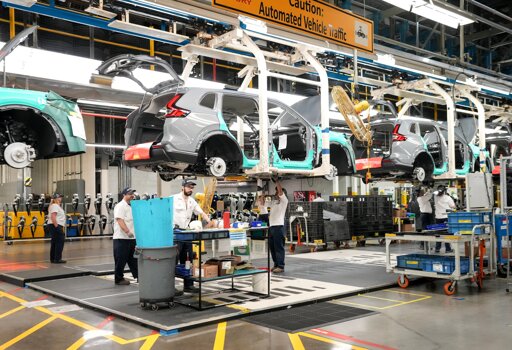Bold mine.
Since 2021, global auto giants including Volkswagen, General Motors, Ford and Honda — and battery-makers from South Korea to Sweden — have pledged $46.1 billion in investments, mostly in Ontario and Quebec. Canadian taxpayers have kicked in $52.5 billion through subsidies, tax credits and other funding from federal and provincial coffers.
Nevertheless, the wheels have begun to wobble enough in recent months to fuel doubts about how realistic Canada’s EV ambitions are.
Several automakers have postponed or shelved projects as consumers fret over battery range and gaps in charging networks for still-pricey electric vehicles. Battery producers facing lower prices and margins have scaled back, too.
At stake are thousands of new EV manufacturing and battery jobs, opportunities for scores of small and medium-sized suppliers, and Canada’s aim to be the critical minerals supplier to the world. A slow-down in the shift to electric cars, buses and trucks would also jeopardize plans to clean up the transportation sector, the country’s second-largest greenhouse gas emitter.



The only things I’d say in response to this is: there is good evidence that China’s EVs are subsidized, meaning it would not put our manufacturers on a level playing field without tariffs; and if you believe Chinese EVs aren’t going to be as laden with spyware as their smartphones or their 5G technology, then I’m not sure what to say.
Your concerns are legitimate, but I don’t think this is the correct solution.